Apple's biggest wins of 2018
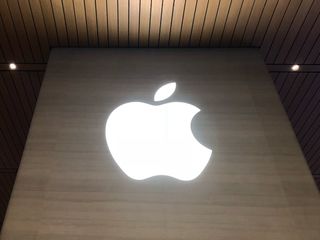
Every year, to end the year, I put together lists of what I think Apple did best and worst for the last 12 months. I've already posted the list of the worst so, now, I'm going to spend a got minute focusing on the positive. What Apple did right and how I'd like to see Apple keep building on it for next year.
Not because I'm a fanboy or apologist or any other dismissive term those who have tribal fury but lack the articulation to form any factual, cohesive arguments to the contrary, but because if you don't recognize the good along with the bad, the jobs well done amongst those still left to be done, them you fail to promote the direction you want to see continue and focus you want to see carried on.
So, what made this year's list?
Rather watch than read? Hit play on the video about and subscribe for more!
Apple Watch
I said it in a video earlier this year (https://www.youtube.com/watch?v=XCHVIPU2zeU) and I'll say it again: Apple Watch is the most important product Apple has ever made because it saves lives in a way beyond what even a desktop, laptop, or pocket computer can. And I posted that before Apple introduced the Series 4 this September.
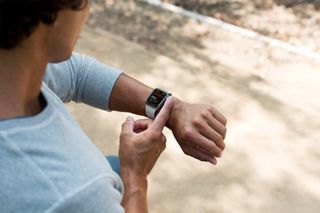
Yeah, the edge-to-edge display is gorgeous, the extra antennas are great, the new workout stuff is fabulous, but it's the combination of improved and new sensors that enable fall detection and more and better heart rate alerts up to an including a single-pad equivalent electrocardiogram that can literally be life saving.
And it's not just the Watch. Over the last couple of years, Apple has taken what began with a way to more accurately measure calorie counting and built it out into the Health app, ResearchKit and HealthKit, Health Records, and more.
Master your iPhone in minutes
iMore offers spot-on advice and guidance from our team of experts, with decades of Apple device experience to lean on. Learn more with iMore!
It's promoting standing, walking, running, swimming, hiking, yoga, and breathing, and since our bodies feed as much off of activity as they do off food, each small push can become part of a huge wave in terms of health and longevity.
Because, unlike desktops, laptops, and pocket computers, wearables like watches are not only always with us but always on us, they can provide features no other type of technology can provide. And because Apple has put privacy and encryption first, it's unique positioned to tie those features into services in a way that keeps our personal data secret and secure.
I don't think we're far off from even more sensors and capabilities coming online, and digital health going from being science fiction to science fact.
But even this year, even today, even now, beyond any other consumer electronics product on the market Apple Watch is already saving lives. And that's a remarkable achievement.
Privacy
In March of this year, Facebook was caught allowing access to the personal data of tens of millions of users. Maybe more, a lot more. It was the beginning of what became the Cambridge Analytica scandal, and it might just be what eventually does for privacy what Windows XP and malware did for security — sound the alarm and change the industry.
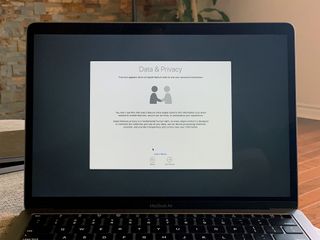
In April, following its March Education Event, Apple's CEO, Tim Cook was interviewed by Kara Swisher and Chris Hayes, and said: "The truth is, we could make a ton of money if we monetized our customer — if our customer was our product. We've elected not to do that."
Swisher then asked Cook what would he do if he were Facebook CEO Mark Zuckerberg? Cooks answer:
I wouldn't be in this situation.
Zuckerberg was livid, and shot back in an interview with Ezra Klein:
You know, I find that argument, that if you're not paying that somehow we can't care about you, to be extremely glib and not at all aligned with the truth.
He went on:
"There are companies that work hard to charge you more, and there are companies that work hard to charge you less." And at Facebook, we are squarely in the camp of the companies that work hard to charge you less and provide a free service that everyone can use.
Over the course of the rest of the year, through revelations old and new, we'd come to learn exactly how little Zuckerberg cared about the customers he'd once referred to as "dumb f***s" for giving him their data, and just how high the real cost of free-as-in-data could be.
As the weeks and months went on, and more and more Facebook controversies and abuses were uncovered — over twenty at last count — Apple doubled down on privacy, launching a new portal in the summer and rolling out a major update to it in the fall, bringing macOS up to iOS' privacy standards and adding extra layers to both.
What started with Steve Jobs sitting across from Walt Mossberg saying, when it came to privacy, you ask your users. And you ask them again and again, you ask them until they demand you stop asking them, has been codified by Tim Cook into a set of principals that guide everything at Apple, from the very beginnings of product development to the way every service runs every day.
The simple fact is, any internet company that harvests your data creates a second or multiple points for that data to be exposed accidentally or abused maliciously. It's happened over and over again, with Facebook, with Google, with Amazon, with federal agencies, with everyone. It's not a maybe. Given bugs in code and flaws in humanity, it's a certainty.
So, Apple is making sure it collects no data if it doesn't absolutely have to, collects the minimum amount of data possible when it does have to, anonymizes and does not associate that data with any user accounts unless it absolutely has to, encrypts the data end-to-end during any and all transmissions of that data, and then keeps the data only as long as it absolutely has to.
Now, Apple still faces some challenges. Countries like China are demanding their customer data be stored on their soil and subject to their laws. Countries like Australia are demanding access into encryption. And balancing what data should be fail secure, like your private messages, and what should be fail safe, like photos of your kids, is becoming increasingly difficult.
But, from the very top down, in the most customer-facing way possible, Apple is positioning itself as the privacy-first, and is taking consistent, meaningful steps towards implementing and improving those goals.
Whether you use Apple or not. Whether you like Apple or not. It's a critical option for consumers to have and an example the rest of the industry ought seriously consider following.
Education
At that March event I just mentioned, Apple introduced a new 9.7-inch iPad with Pencil support for $350 and less if you're a school. It also announced new software for the classroom. To the lamentation of many, there was nothing schools could use to replace Google account or document management and collaboration, which from a privacy standpoint is still a gaping whole that someone desperately needs to fill. But, Apple did expand the Everyone Can Code curriculum and added the all-new Everyone Can Create.

From WWDC in June to the iPad event in October, Apple also announced dozens and dozens of new courses as part of Today at Apple, it's retail-based education initiative. It greatly expanded all the classics like photography, music, coding, and apps, but it added design courses and more. That's on top of Hour of Code, Apple Camp, Field Trips for schools, Swift Playgrounds, and the other programs Apple has been running and also expanding for years.
Taken together, it represents hundreds of millions if not billions of dollars of in free educational services, not just for Apple users, but for anyone interested in any of the products or features Apple makes available.
I'm sure Apple sees it as an investment, as playing the long game — which is rare enough in the tech sector. But for everyone in the community it's not a game at all, it's chance to learn new, real skills they can use for the rest of their lives… maybe even use to start new lives.
I spoke about pricing in my previous, Apple's biggest misses videos, but if you're downloading all the free content and taking advantage of the free programs, you're getting a good chunk of that money back.
Performance
Apple has had a performance team for a long time. Part of their jobs is to carry older devices running upcoming operating systems. Engineers have often carried older devices as well, partially because they have family members on those devices and they want them to have as good an experience as possible.
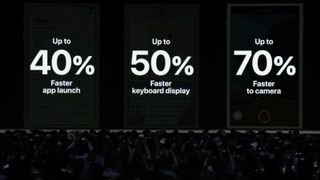
But, every year, as launch led to crunch, like anything that isn't a specific focus, it ends up getting lost as push comes to ship.
This year, though, performance wasn't just a specific focus. It was the headline feature.
The goal of iOS 12 was to make iPhone and iPad faster and more responsive not just on current generation, 2017 and 2018 hardware, but on up to five generations going back to 2013.
In an industry where many vendors struggle or don't even bother to ship the latest software and non-flagship devices still sometimes never see any updates at all, never mind updates going back half a decade, that's a significant commitment from Apple and a huge value add for customers.
It might seem like a poor business decision to keep older devices running better, longer, but I think Apple sees it as an investment but in reducing environmental impact and strengthening its brand. If people are happier with their Apple devices they're more likely to keep buying Apple devices and if someone is given an older Apple device as a hand-me-down, if they ever do want to buy a new device, they're more likely to buy Apple as well.
If it was both the right thing to do and the optimistic thing to do, why did it take Apple so long to do it? I think part of the answer is no doubt the fallout surrounding Apple's decision to gate performance to preserve battery life and prevent unexpected shutdowns that hit at the very end of last year. The other part is resources. Apple literally took the best and the brightest engineers, the ones who make the underpinnings of the system and in any other year would be leading the charge to push out new features, and had them spend their time improving the performance of the existing frameworks or technologies instead. And that's always a risk when Google is the competition and they're spinning up terrific new features every year as well.
The results? Apple gave its numbers at the keynote: Apps launch up to 40% faster. The keyboard launches up to 50% faster and remains more responsive. The camera launches up to 70% faster. The share sheet launches up to 100% faster — even when an older device is already under load.
It was an effort that went from Johny Srouji's silicon team to Craig Federighi's Springboard and UIKit engineers, to the core of Lisa Jackson's environmental and sustainablity policies. And it really paid off. Even in the first betas, older devices worked perceptively better. Now, six months later and three months post-release, and even the oldest of the older devices are running quicker and better than they have in years.
And all Apple has to do is keep it this way going forward. No pressure.
The Mac
When 2018 began, the Mac mini and MacBook Air hadn't been updated in an embarrassing number of years, the MacBook Pro was facing everything from keyboard complaints to charges that it just wasn't pro enough.
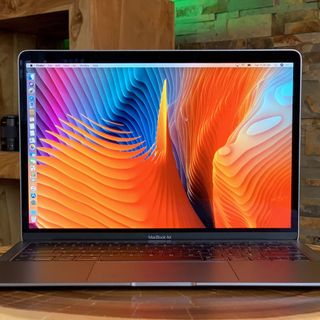
Apple was having a hard time with its Mac community and an even harder time with its Mac pros, who saw the company as de-prioritizing them at best and abandoning them at worst in the face of the massive mainstream success of the iPhone and iOS.
The only glimmer of hope to hold onto was the just-launched iMac Pro and the unusual promise of a new, modular Mac Pro and Pro Display somewhere, somewhen on the horizon.
Then, in the spring, we began hearing about a new Pro Workflows team at Apple. A group of video and music producers and editors, photographers, designers, and other industry people who had joined Apple to help make sure the next generation of Macs, macOS, and pro apps really were aligned with pro users. Everything down to the smallest details like working with internal teams and partners to make sure dialog boxes launched as fast as possible.
At WWDC we got Mojave, yes, and it's oh-so-pro Dark Mode, but also a focus on infrastructure wrapped up in a candy pro-features-for-everyone wrapper. We also got UIKit apps, which could open the Mac up to thousands of new software titles when it gets into developers' hands starting in 2019.
July saw new MacBooks Pro, not only with Intel Coffee Lake chips but with something I'd been asking for since 2016: An even higher end SKU on the top for pros who's time was literally worth more than any amount of Mac money. i9, 32 GB of memory, and 4 TB of solid state storage later, and hot wow did we get it.
Apple even tweaked the keyboard design, adding a membrane, which seems to have resulted in far fewer complaints over the last few months as well.
Then came October and a new MacBook Air with a Retina display and Amber Lake processor, and a new Mac mini with Coffee Lake and a decidedly pro focus.
We didn't get a new Amber Lake 12-inch MacBook or new Coffee Lake iMacs, or whatever the hell Intel is calling the current generation Xeon for iMac Pro. So, Apple still isn't updating every Mac every year, but for the first time in many years, no Mac has been left completely behind either.
Camera
There's one more thing I wanted to give a shout out to this year and that's Apple's camera team. There's a lot of debate online about who makes the best camera, and different people love Huawei, Samsung, Google, and Apple, and all for good and valid personal, subjective reasons.
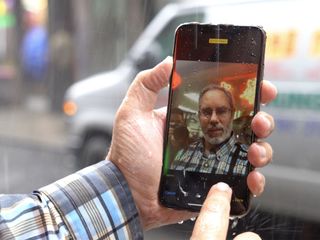
Huawei makes me want real wide angle lenses on all my phones, and Google makes nighttime look like day time, and when you take the scope of hardware and software that entails, and you project it out, the whole industry is just going to get more and more exciting.
There are two things Apple's team did this year that I think especially stand out, though. The first is elevating portrait mode from a custom disc blur to a full on computational lens model that renders and re-rerenders depth effect as the scene and artificial aperture changes. And not only did they do that for the telephoto lens on iPhone XS, but they did a completely different version for the wide angle on the iPhone XR as well.
It's video though where the iPhone's competition can't be found in other phones but only in dedicated cameras, and the difference only continued to grow with not just rock solid 60 fps 4K video, but now extends dynamic range interleaved in real time at 30 fps and under, along with stereo audio recording.
A lot of the credit for this should be shared with the platform technologies team that, year after year, keeps turning out the best silicon in the business, period, but it all comes together to give the iPhone the unique ability to go from pocket to picture in an instant, and show you what you're going to shoot the whole way through.
Read: Apple's biggest misses of 2018

Rene Ritchie is one of the most respected Apple analysts in the business, reaching a combined audience of over 40 million readers a month. His YouTube channel, Vector, has over 90 thousand subscribers and 14 million views and his podcasts, including Debug, have been downloaded over 20 million times. He also regularly co-hosts MacBreak Weekly for the TWiT network and co-hosted CES Live! and Talk Mobile. Based in Montreal, Rene is a former director of product marketing, web developer, and graphic designer. He's authored several books and appeared on numerous television and radio segments to discuss Apple and the technology industry. When not working, he likes to cook, grapple, and spend time with his friends and family.
Most Popular





